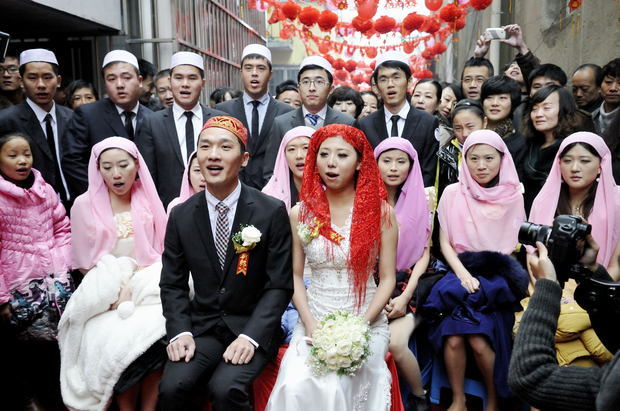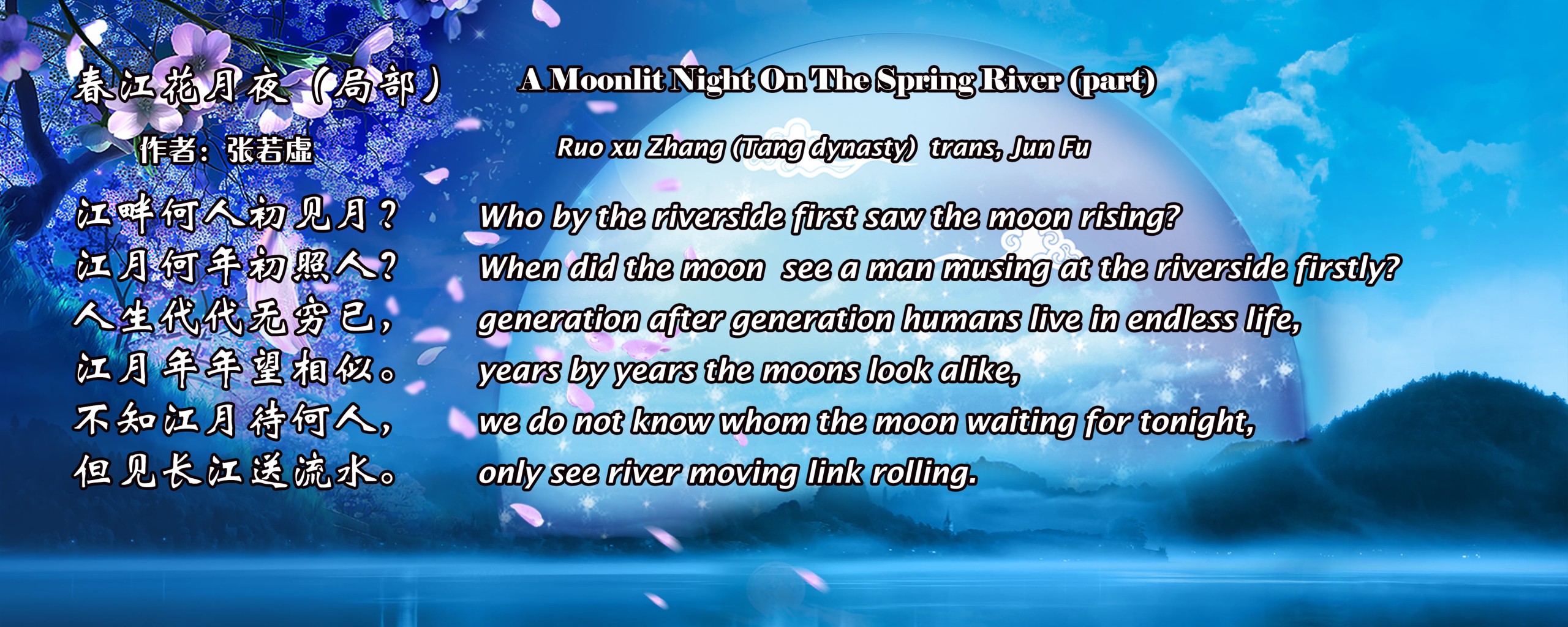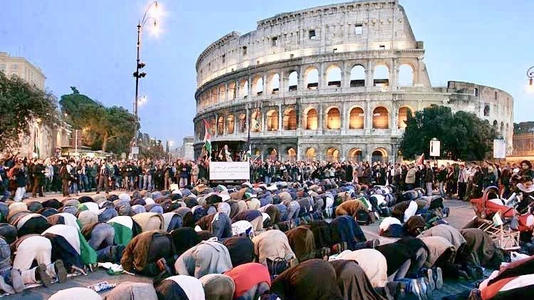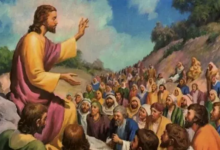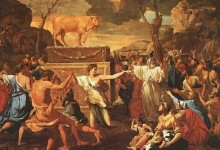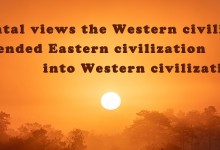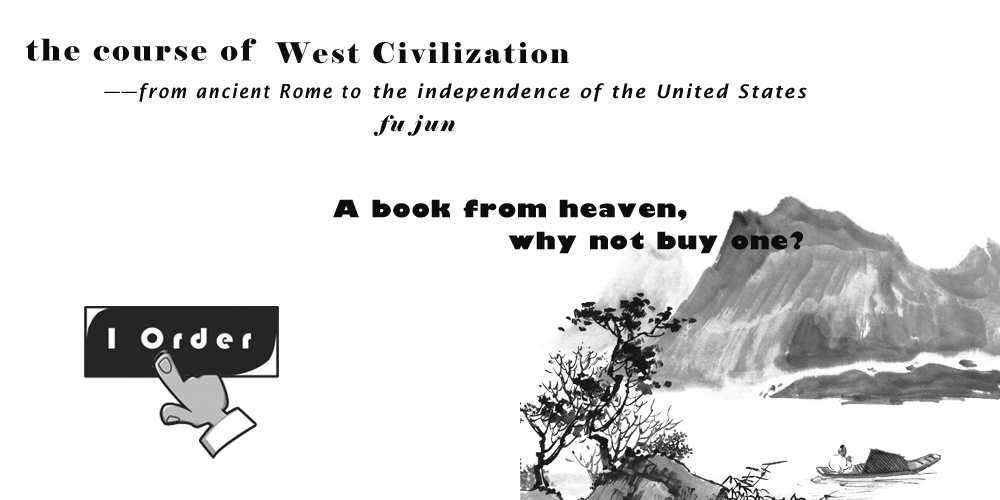
In fact, if everyone in this world really examines their livings and lives, they will conclude that human society is a chaotic and turbulent world. It is full of diseases and scourges, and in the end, everyone has to face the inevitable destruction and death, and their lives in the world are anxious and irritable. Fortunately, God has given humans a third cognitive function, knowing infinity and producing religion. We are convinced that humans have another ultimate, eternal world that carries all our dreams. ①In this world, everything is tranquil, sweet, and eternal. It is the home of the soul and the harbor of happiness. Coming to this ultimate world has become the meaning of our life and the truth of life. The ultimate world is not an imaginary fantasy world. Humans not only know the ultimate world through the infinite but also know its specific content through many communications between gods and people, namely, doctrines, such as the inspiration of prophets, oracles, hallucinations, and self-spiritual cultivation. The main purpose of this book is not to introduce specific religious practices, such as Taoist cultivation, Buddhist meditation, Christian cultivation, or various religious experiences, miracle hearings, etc. These originally belong to the most important content of various religions but have nothing to do with the theme of this book. I just briefly mention them here without further elaboration. Religious doctrines are embodied in sacrificial texts, folklore, and poems, especially in the scriptures of various religions. Finally, it forms specific iconic teachings through rituals, ceremonies, ways of life, food habits, clothing features, decorative symbols, etc. The doctrines have formed customs and lifestyles with distinctive religious characteristics. Believers are convinced that they can understand and come to the ultimate world through these specific iconic doctrines, which are the intermediary and mediator between believers and the ultimate world. As a result, the secular life of humans is connected with the ultimate world, and the secular life has a sacred meaning and a holy aura. Our anxious and irritable lives immediately have vitality and glory, and our lives are full of wishes and futures. This is where the infinite charm of religion lies, and it is also the reason why it decisively affects our lives.
Due to the limitations of human beings, people can only observe the ultimate world from different angles and understand it one-sidedly, so there are countless religions, countless different ultimate worlds, and countless different customs and lifestyles. Due to the decisive influence of religion on our lives, we can clearly see that even for the same race, their living customs are very different because of different religious beliefs. In contrast, different races are more similar on the ground of the same religious belief. I compare the living customs of Christians and Buddhists, which are more common in China, and with which I am more familiar, to see how different religious beliefs make even people of the same race so distinct. The pious Buddhists worldwide use their hands together as their greeting etiquette, and Christians all over the world use to cross their hearts as their greeting ritual. Buddhists do not kill anything and are vegetarian, and generally do not drink alcohol. Drinking a glass of wine is the last ceremony after Christian worship. This glass of wine represents the blood of Jesus and means that Jesus is in the heart. Therefore, Christianity does not abstain from drinking and is far from vegetarian. However, Christians must pray before each meal and thank the Lord for the food. Buddhists believe in reincarnation, so they release the souls of the dead and do Dharma events.

Welcome to https://readjoys.com/,read, buy“The Course of Western civilization” online

Christians do not believe in reincarnation but believe in waiting for resurrection and great judgment after death, so the funeral is simple. Buddhists worship Buddha statues in their houses, surrounded by sandalwood smoking; they usually wear Buddha beads on their hands and hang Buddha statues on their chests. Christians, especially Protestants, regard the ornaments as idol worship and deny wearing any ornaments. Their house decorations are simple and plain. Buddhists post Amitabha at the gate, while Christians hang Emmanuel. Christians treat each other as brothers and sisters and have close contact. Buddhists don’t require to gather and worship every week; they generally have less contact and remain in a plain relationship. Buddhists do not kill any living being and often free captive animals. Not to mention Christians are allowed to make killings. Since ancient times, many Christians have enjoyed hunting. There are too many differences to list, this kind of comparison can be listed unceasingly, but we will not continue here. As long as we know the purpose of our discussion, for believers, everything in life is for faith, the eternal and ultimate world. These customs and lifestyles are closely related to their coming to the ultimate world, so they are tough and stubborn and cannot be changed at all. Therefore, the characteristics of any religion are very distinct.
However, this matter is essential; I think I should continually give other examples to let everyone understand more deeply that religion makes customs and lifestyles so strong and tenacious and not to be changed. For example, the Jews wandered around the world and lived in different countries; even their language and writing were different. But because they all believed in Judaism and the same Old Testament, their living habits and customs have not changed for thousands of years, and they still are Jewish people of apparent characteristics. The Muslims also have distinctive characteristics that make the Huis, who are also Han Chinese, so unique. Even if it costs endless annoyance to conflict with local customs, they never eat pork. Men of the Huis wear white hats on their heads with big beards, women wear a veil on their faces, and pay great heed to cleanliness in their diet. Besides not eating pork, they do not eat animal meat that has been slaughtered and killed by non-Islamic people, nor do they eat animal blood. Most Hui people do not drink alcohol. For the Han people in our secular society, this is simply incredible. Is life without wine still a life? The Hui people have other characteristics, such as hatred of homosexuality, torturing of thieves, etc. These all are dictates of doctrine and cannot be changed at all.


Human society has broken out countless wars for the material foundation, economic interests, wealth, beauty, and territory, but economic interests can be compromised. Otherwise, why is there such a saying of wheeling and dealing? As long as one side does not kill all, the other can surrender at the mere rumor of their coming. These are the most apparent manifestations of ancient Chinese secular society. Since ancient times, China had the saying that vying for the throne on the Central Plains determined the empire’s power. As long as several battles on the Central Plains confirmed winner and loser, the remaining surrounding areas would be conquered as if the autumn wind swept out the leaves. For most people, whoever became the emperor was the same. It was just some loss of economic benefits at most, but only one life; there was no need to take life for wealth. Mr. Lu Xun once pointed out sharply that the Chinese have no religious wars, only the struggle for economic interests, so they are most diplomatic and good at compromise. He said, “The Chinese naturally have superstitions and “faith,” it seems that they lack “firmly believe “… the man adores Confucian while worshiping Buddha, and soldiers believing in the faith will believe in the other tomorrow. Religious wars have never existed.” ②And above all, the war that broke out for economic benefits is only a war within the same sacred order; the redistribution of benefits does not affect the whole social system. This is what Hegel said, “China’s history has no history in essence; it is just the repetition of the monarch’s fall. No progress can come from it..” ③Hegel’s words are extremely profound. It meant that China’s thousands of years of history were frozen, a continuous cycle without progress.
Many people think that Hegel underestimated China. In fact, Hegel’s view is similar to a scholar-official in China; only the scholar-official explained it from another perspective. This scholar-bureaucrat was Gu Yanwu. And his related famous saying was revised as teaching material for patriotism. Originally, His famous saying was, “Everyone is responsible for the rise and fall of the world,” but today, it is changed to “Everyone is responsible for the rise and fall of the country.” In fact, this meaning after the change has gone against the original intention. Gu Yanwu himself once explained, “There is the subjugation of countries, there is the demise of the world, and what is the difference between them? Changing the country’s name is the subjugation of countries, but as for leading animals to eat people, letting people eat each other, it is called the demise of the world? ④” The world” does not refer to the country but the ethical order and moral norms of Confucianism, including the political ideals of the rule of the saint king. This is actually what Gu Yanwu cares about, not the change of the country or the change of dynasties. However, does this prove that Hegel’s theory is exceptionally correct? The so-called world in China has not changed for thousands of years, but the country and dynasty, society’s outer shell, constantly changed. This was also the reason why China repeatedly perished to foreign races, but most people can accept it. Except for the royal line and relatives of the royal family, the interests of most aristocrats and officials didn’t infringe much. Secondly, The foreign culture was assimilated by Confucianism. The world has not changed anything that Confucian scholars and officials are familiar with. China has never been conquered by a religion like other societies. China has always been a very pure secular society. Confucian culture has been the basis for maintaining the existence of Chinese secular society for thousands of years, and it is also the sacred order of the Chinese people. Confucianism, The sacred order of China, has never been broken, so China has always continued a cycle of dynasties.

Welcome to https://www.amazon.com/dp/B0BQF77K3D to buy the Kindle ebook“the course of western civilization(essence version)”


The real civilization of humans, the light of civilization from the depths of the universe, only relies on faith that could conquer the world, cleanse all filth, and shine in every corner. Only faith can face danger, threats, and death, still uncompromisingly persist and stick to the light of civilization. Only for the sake of faith is it possible for humans not to be afraid of sacrifices and hardships, sowing the seeds of civilization everywhere. Only on the ground of faith can people regard dying on the battlefield for civilization as the highest ideal and believe that martyrdom for civilization is the highest glory. Only on account of faith can make people all or nothing; only in this way can civilization spread everywhere and make everyone in the world enjoy its glory. I personally never believe that civilization can exist without faith because, without faith, the greed and depravity of human nature will make humans naturally choose to indulge in pleasure, enjoyment, and excitement rather than civilization. Therefore, a good religious belief is invaluable to humans, a treasure shared by humans; it can determine the course of human history.
Note:
① J.Streng “understanding religious life”, Shanghai People’s publishing house, trans,Jinze, p 48
② Lu Xun “Fringed Literature”, “Fortune” people’s Literature Publishing House
③ Hege “Philosophy of Right”, trans, Fan Yang and Zhang Qitai
④ Gu Yanwu ” The Daily Accumulated Knowledge ” Volume 13 of ” The Daily Accumulated Knowledge ”
⑤ J.Streng “understanding religious life”, Shanghai People’s publishing house, trans,Jinze, p 69


Friends without them can use the following PayPal account to donate, https:/ /www.paypal.me/readjoyinc.
 the course of Western Civilization
the course of Western Civilization

